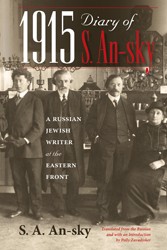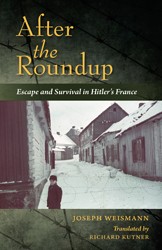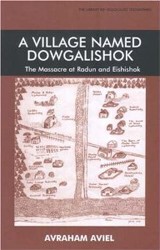Katja Petrowskaja, a native of Kiev who studied literature in Estonia and received her PhD in Moscow, has called Berlin her home since 1999. Although her first language is Russian, Petrowskaja chose to write Maybe Esther in German, which has been beautifully translated into English by Shelley Frisch. The author explains in a 2014 interview that she feels freed to write about her Jewish ancestors not as part of the established “victim discourse.” Instead, by using the “language of the perpetrators,” she writes as a modern member of her far-flung family of Jewish intellectuals, educators, humanitarians, authors, and social provocateurs. Just like her ancestors, Petrowskaja uses the language of the people around her, who she strives to understand and connect with.
Thus, Petrowskaja’s “family story” is not only about Babi Jar and the Holocaust; the book also assembles a family tree that extends as far back as the early twentieth century, illuminating the full lives of her socially engaged relatives. She gives due recognition to people whose existence would have otherwise been erased from memory.
In the process of searching for her ancestors, Petrowskaja visits many of the places they lived in Russia, Ukraine, Poland, and Germany. She brings back reflections on the task of living and appreciating the complexities of lives past without centering on their brutal endings. As an example of her wish to honor a greater context, she quietly states in the previously cited interview: “Mauthausen is also a beautiful baroque city.” In the first chapter of Maybe Esther, she also describes her shock at being greeted by a huge banner stating “Bombardiers” at the main Berlin train station, not immediately realizing that it was an advertisement for the musical. Expanding beyond the immediate associations with war and destruction, she puts the reality of the bombed-out Berlin of 1945, as a signifier of the most traumatic period in recent European history, next to Berlin’s pursuit of peaceful and cultured coexistence today. Petrowskaja lives in the present with keen awareness of the past, and is capable to hold both with utmost respect. In her search to restore the presence of her murdered or disappeared ancestors, she allows for the untraceable and unknowable in their lives to stand with dignity — her Maybe is the ultimate honor to the full reality of her ancestors’ lives.
Reinhild Draeger-Muenke left her native Germany as a young adult and has lived in the United States for almost 40 years. She is a psychologist and family therapist in the Philadelphia area, helping people heal from intergenerationally transmitted trauma.





